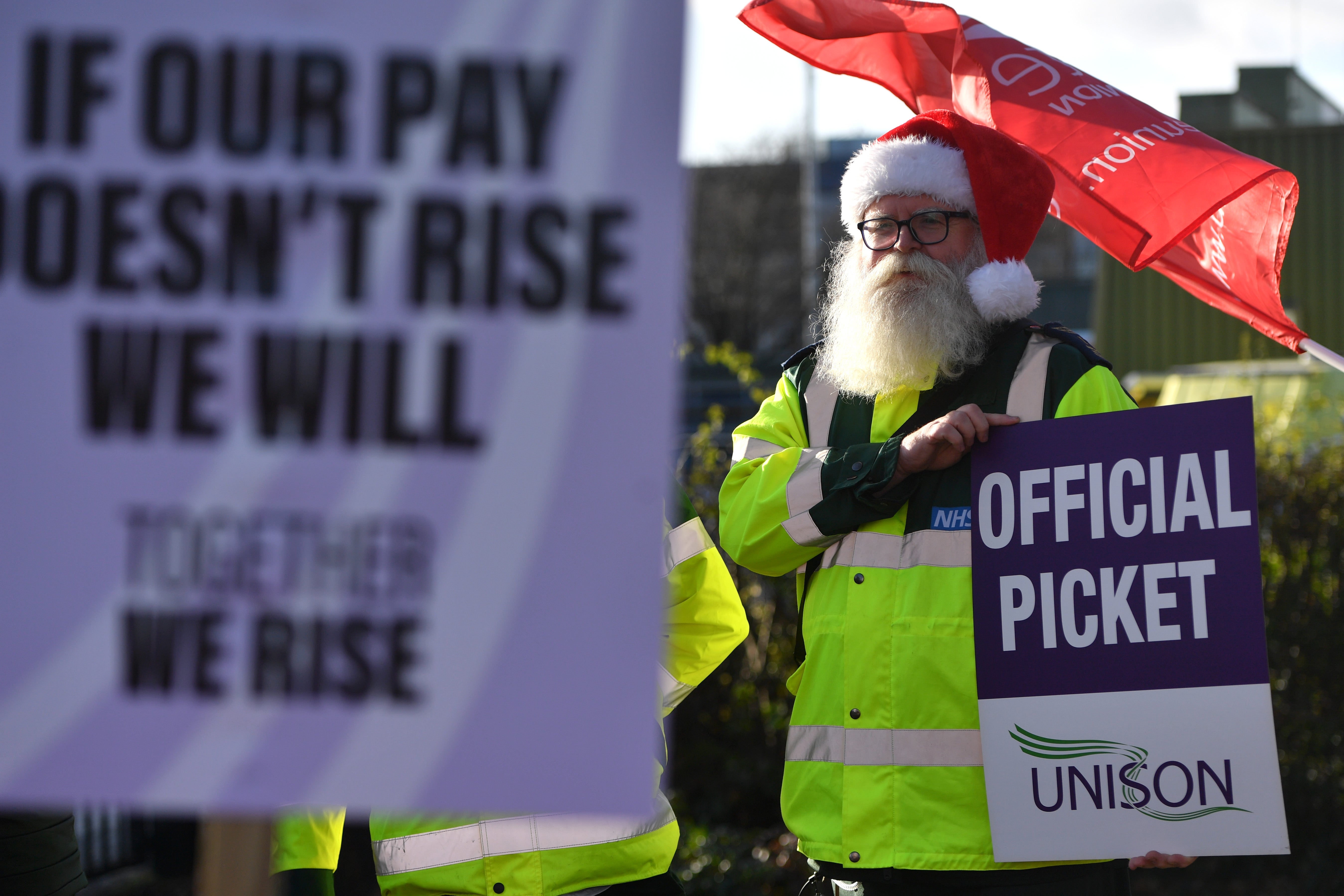As strikes look set to continue, 2023 could be a good year for the unions
The economic reality is on the side of the unions, and Rishi Sunak lacks Thatcher’s sharp political instinct, writes Sean O'Grady


After decades when it was – sadly – usually safe to ignore the pronouncements of union leaders, the most widespread outbreak of industrial action since 1979 has meant that they are household names once again.
Not yet as familiar as, say, Mick Lynch, is the brand new general secretary of the Trades Union Congress, Paul Nowak, who formally takes over from Frances (now Baroness) O’Grady on 1 January. He is, though, making a somewhat loud entrance.
He told The Independent that the strikes could carry on throughout 2023 if the government refuses to negotiate over pay rises. If we take ministers at their word, that they won’t do so until at least the new public pay body recommendations arrive in April, then the country is in for a prolonged period of conflict.
Even as things stand, maybe one million workers from train drivers and nurses to passport control officers and driving examiners will be involved in industrial action of some kind by the end of January. The lost days’ worth of output alone will push GDP down, and the chaos in hospitals and on railways.
Nowak seems just as determined and rather more militant than his recent predecessors. Like Labour’s deputy leader, Angela Rayner, and the likes of Jim Callaghan and Ernest Bevin further back in Labour history, the trade union movement was Nowak’s path to the top of public life – this is no ex-spad with family connections guaranteeing success.
What will he do? The TUC actually holds little power of its own – it depends on the strength of its individual union affiliates (which do not include the Royal College of Nursing, by the way) and the mood of union members. This, at a time of an unprecedented squeeze on wages, is a considerable asset.
In looking at what lies in the string of one- and two-day stoppages it has to be remembered that employers are entitled to dock a day’s wages for every day someone is on strike. That equates to around 0.4 per cent of their annual salary. For a prospective reward of an extra 1 or 2 per cent on a pay award, the returns aren’t spectacular, even if the wage rise is permanent.
Some unions offer “strike pay” of £50 a day and hardship grants, but the point about the financial calculation stands. So there is obviously more to these disputes than a simple question of pay: fear of job losses and, especially in the NHS, oppressive and dangerous levels of understaffing in clinics and onwards. Hence the highly determined mood. It is a very long time since strikers could claim the dole or housing benefit to sustain them. Now they can be starved into submission.
Nowak is a voice, and, it seems, an eloquent one – he has that mood of militancy behind it, and that means it’s authentic. He still manages to sound reasonable, as all the union leaders do, because they say that they wish to talk but that ministers refuse to even discuss pay – which is true and makes the government seem asinine.
Nowak has spoken about ‘coordinated’ action, with some talking that up as a general strike, which would be illegal, and is fanciful
When Rishi Sunak, Jeremy Hunt or Steve Barclay talk about independent pay-review bodies it just washes over the public’s heads. The government, even with noisy cheerleaders in the press, fails to win the argument.
So ministers will resort to the law, once again. Without a painful recession to push unemployment higher and cow workers into submission, it’s unlikely to work. Ministers want to end the sort of multiple actions we’ve seen in recent weeks, but what used to be called “secondary action” – by workers in entirely different industries on industrial action “in sympathy” has long since been unlawful.
Nowak has spoken about “coordinated” action, with some talking that up as a general strike, which would be illegal, and is fanciful. However, if there is a legitimate dispute about pay on the railways and another on the buses, and they coincide, then a magnified disruption is inevitable. Many more workers, such as firefighters, are also balloting for industrial action.
It’s difficult for a law to ban “coordinated” action if it cannot be proved. Minimum service commitments are supposed to take the sting out of strikes, but no employer can force a worker to do overtime. Higher thresholds for strike ballots seem only to increase participation and strengthen union mandates. Legalising agency workers to break strikes doesn’t work where they don’t have the skills. A smart union leader – and the current generation are remarkably savvy – can evade most of any laws, and in the end some might even welcome a form of martyrdom (though custodial sentences and personal liability would be unwise).
Economic reality is actually on the side of the unions. Nowak takes over with vacancies at their highest and unemployment at its lowest in about half a century. He and his colleagues can hardly lose in such circumstances. He is also blessed by having an unusually slow-witted bunch of ministers confronting him. Sunak plainly lacks Margaret Thatcher’s sharp political instinct – she knew when to stage a tactical retreat and that she should only pick fights she could win – and to keep the public on-side.
So 2023 should be a good year for Nowak and the brothers and sisters, if not for the public finances and anyone looking to pass their driving test or catch a train.

Join our commenting forum
Join thought-provoking conversations, follow other Independent readers and see their replies
Comments